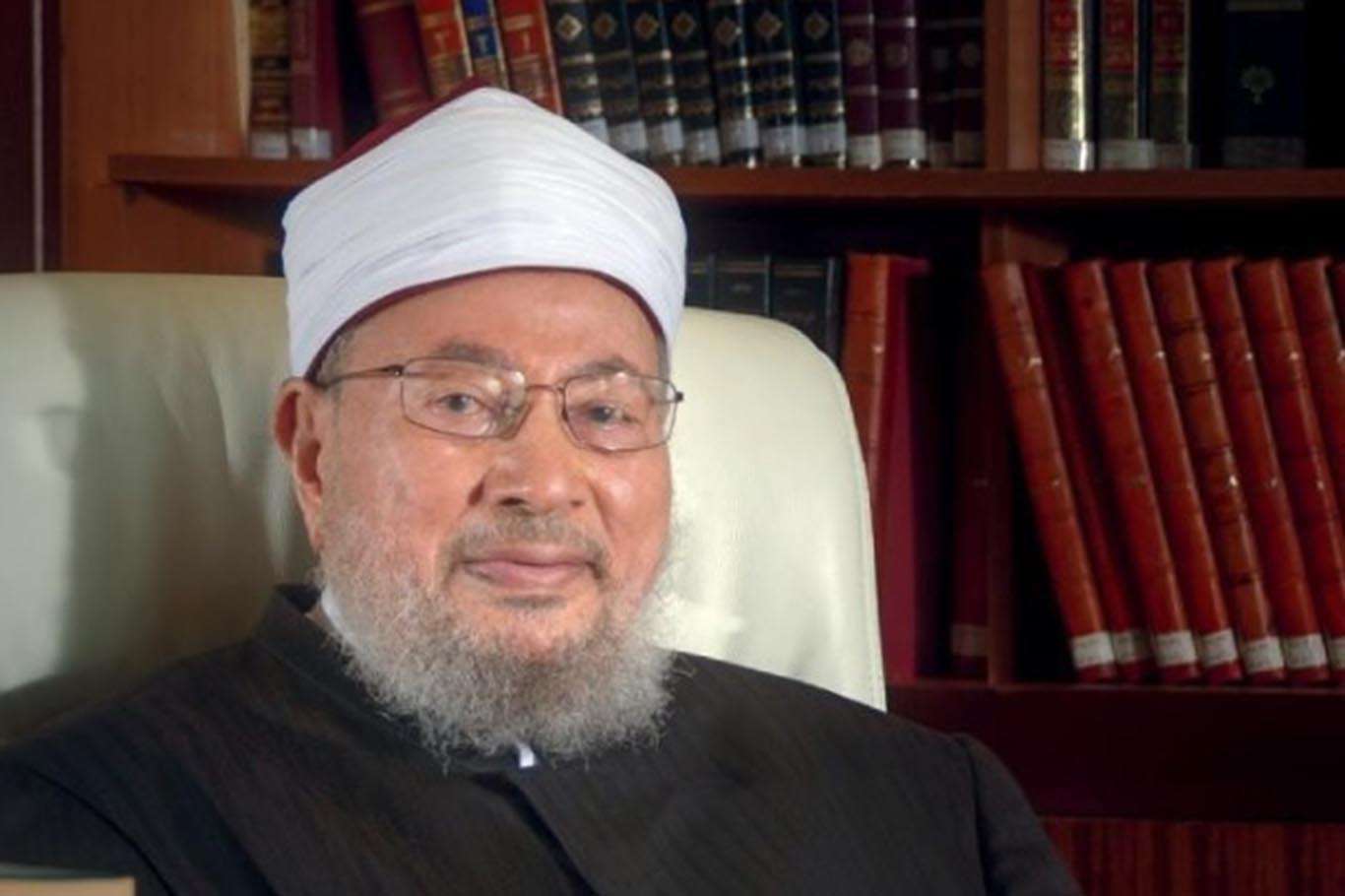Sheikh Yusuf Yusuf al-Qaradawi passes away at ages of 96


Founding President of the International Union of Muslim Scholars (IUMS), Sheikh Yusuf Yusuf al-Qaradawi, passed away at the ages of 96 on Monday in Doha, the capital of Qatar.
The official account of the scholar announced the news on Twitter, followed by the same announcement on IUMS Twitter.
“May Allah have mercy on His Eminence Imam Yusuf al-Qaradawi, the founding president of the International Union of Muslim scholars, who gave his life explaining the provisions of Islam. The Islamic nation has lost one of its most sincere and virtuous scholars. We ask God the Highest, the Almighty, to forgive him, have mercy on him, and pardon him,” IUMS said.
انتقل إلى رحمة الله سماحة الإمام يوسف القرضاوي الرئيس المؤسس للاتحاد العالمي لعلماء المسلمين الذي وهب حياته مبينا لأحكام الإسلام..
— علماء المسلمين (@iumsonline) September 26, 2022
وقد فقدت الأمة الإسلامية عالماً محققا من علمائها المخلصين الأفاضل نسأل الله العلي القدير أن يغفر له ويرحمه رحمة واسعة ويعفو عنه. pic.twitter.com/vhQJEos9A4
Who was Sheikh Yusuf Yusuf al-Qaradawi?
Al-Qaradawi was born in 1926 in Saft Turab village in the Nile Delta, now in Gharbia Governorate, Egypt, into a poor family of devout Muslim peasants. He became an orphan at the age of two, when he lost his father. Following his father's death, he was raised by his uncle. He read and memorized the entire Quran by the time he was nine years old.
He then joined the Institute of Religious Studies at Tanta, and graduated after nine years of study. While in Tanta, Al-Qaradawi first encountered Hassan al Banna, the founder of the Muslim Brotherhood, when al Banna gave a lecture at his school. Al-Qaradawi has written of the lasting impact of this encounter, describing al Banna as “brilliantly radiating, as if his words were revelation or live coals from the light of prophecy.”
After graduating from the Institute of Religious Studies he moved on to study Islamic Theology at the Al-Azhar University in Cairo, from which he graduated in 1953. He earned a diploma in Arabic Language and Literature in 1958 at the Advanced Arabic Studies Institute. He enrolled in the graduate program in the Department of Quran and Sunnah Sciences of the Faculty of Religion's Fundamentals (Usul al-Din), and graduated with a master's degree in Quranic Studies in 1960.
In 1962, he was sent by Al-Azhar University to Qatar to head the Qatari Secondary Institute of Religious Studies. He completed his PhD thesis titled Zakah and its effect on solving social problems in 1973 with First Merit and was awarded his PhD degree from Al-Azhar.
His connection with the MB led to imprisonment under King Farouq in 1949, then three more times during the reign of former President Gamal Abdul Nasser. He left Egypt for Qatar in 1961, and did not return until the overthrow of the military regime by the 2011 Egyptian Revolution.
In 1977, he laid the foundation for the Faculty of Shari'ah and Islamic Studies in the University of Qatar and became the faculty's dean. In the same year he founded the Centre of Seerah and Sunna Research.[30][31][28][32] He also served at the Institute of Imams, Egypt under the Egyptian Ministry of Religious Endowments as supervisor before moving back to Doha as Dean of the Islamic Department at the Faculties of Shariah and Education in Qatar, where he continued until 1990. His next appointment was in Algeria as Chairman of the Scientific Council of Islamic University and Higher Institutions in 1990–91. He returned to Qatar once more as Director of the Seerah and Sunnah Center at Qatar University, a post he still occupies today.
In 1997, Al-Qaradawi helped found the European Council for Fatwa and Research, a council of important and influential Muslim scholars dedicated to researching and writing fatwas in support of Western Muslim minority communities based in Ireland, and he serves as its head. He also serves as the chairman of International Union for Muslim Scholars (IUMS).
In the wake of the 2011 Egyptian Revolution, he returned to Egypt for the first time since leaving in 1961.
Al-Qaradawi finished 3rd in a 2008 poll on who was the world's leading public intellectual. The poll, Top 100 Public Intellectuals, was of the readers of Prospect Magazine (UK) and Foreign Policy (United States).
After the 2011 Egyptian Revolution, Qaradawi made his first public appearance in Egypt after 1981.
In Tahrir Square, he led Friday prayers on 18 February, addressing an audience estimated to exceed two million Egyptians. It began with an address of “O Muslims and Copts”, referring to Egypt's Coptic Christian minority instead of the customary opening for Islamic Friday sermons “O Muslims”.
He was reported to have said, “Egyptian people are like the genie who came out of the lamp and who have been in prison for 30 years.” He also demanded the release of political prisoners in Egyptian prisons, praised the Copts for protecting Muslims in their Friday prayer, and called for the new military rulers to quickly restore civilian rule. He referred to Mubarak as a Tyrannical Pharaoh. (ILKHA)
LEGAL WARNING: All rights of the published news, photos and videos are reserved by İlke Haber Ajansı Basın Yayın San. Trade A.Ş. Under no circumstances can all or part of the news, photos and videos be used without a written contract or subscription.
Ukraine’s Verkhovna Rada overwhelmingly ratified a landmark minerals agreement with the United States on Wednesday, with 338 lawmakers voting in favor, according to MP Yaroslav Zhelezniak.
Turkish Foreign Minister Hakan Fidan held talks with Moldova’s Deputy Prime Minister and Foreign Minister Mihai Popşoi on the sidelines of the Informal Meeting of EU Foreign Affairs Ministers (Gymnich) in Warsaw.
Iraqi Prime Minister Mohammed Shia Al Sudani was welcomed by Turkish President Recep Tayyip Erdoğan with an official ceremony at the Presidential Complex in Ankara on Thursday.
Russian President Vladimir Putin hosted Chinese President Xi Jinping at the Kremlin on Thursday for bilateral talks, reinforcing the deepening partnership between Moscow and Beijing.